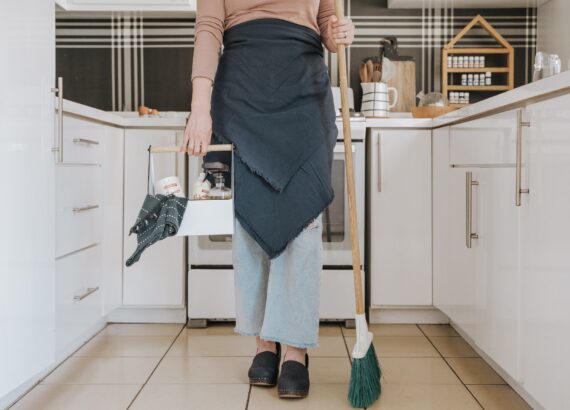How to Navigate Postpartum Anxiety and OCD

It’s easy to wax poetic about the beauty of motherhood and the joys of bringing home a newborn baby, but for many mothers, the experience is far more complex. While it may be tempting to gloss over the traumas of childbirth, it’s important to acknowledge how radical a change it is. Not only are there dramatic physical changes from pregnancy and labor, but we also experience a complete shift in our daily routines.
Postpartum anxiety and OCD are more common among new mothers than you might expect. It’s estimated that between 11% and 21% of women experience some postpartum anxiety.
In this article, we’ll explore some ways to navigate postpartum anxiety and OCD.
What is Postpartum Anxiety?
In many ways, postpartum anxiety is perfectly natural. Some families may carry a genetic risk for postpartum anxiety. At the same time, in other cases, it may be caused by sudden changes in hormones, a history of mental health issues, or other significant life changes. While there isn’t a clinical definition for postpartum anxiety, it can be identified by feelings of anxiousness and irrational worry.
Do you get up several times per night to check on your baby, even when they aren’t crying or ready to be fed? Or do you have dark thoughts about people being out to get you or the baby? Anxiety is often a response to uncertainty, and introducing a new baby into your life can certainly cause a person to feel like things are spiraling beyond their control or at least more complex than they might have expected.
Compulsive Behaviors
In the weeks or months after childbirth, you may struggle to deal with intrusive thoughts and compulsive behaviors. In fact, these compulsive behaviors are a self-soothing mechanism triggered by excessive anxiety and fear. Examples of compulsive behaviors related to postpartum anxiety include:
- A compulsive need to clean or tidy up areas.
- An obsessive need to clean either yourself or the baby.
- Intrusive thoughts or worries about the health of the baby.

Managing Postpartum Anxiety & OCD
There are several steps you can take to help you navigate postpartum anxiety. It’s absolutely critical to prioritize self-care and look for support from family and friends. The idea that all mothers must be superheroes is harmful. It’s important to lean on the people around you for help.
Some steps you can take to help get your postpartum anxiety under control include:
- Establish routines – One effective method for managing postpartum anxiety is to create a plan to tackle your worries and set limits on how much time you spend on them. Setting up routine bath times, breaks, and other daily rituals can help restore a sense of consistency to your uprooted life.
- Practice self-care – Just because you’re a mother doesn’t mean you can’t carve out time for yourself. You may not have as much time for your hobbies anymore, but setting aside a few minutes to read each day or half an hour for lunch with an old friend each week, can help you stay confident and connected with yourself.
- Exercise your voice – Anxious thoughts often get louder the more we try to avoid them. Write your thoughts down and explore them in a journal, or consider finding a support group with mothers who understand what you’re going through. Maybe the answer is reaching out to an old friend you feel safe opening up to. Whatever the case, let your worries out so they don’t eat you alive from within.

Getting Support
Postpartum anxiety and OCD may leave you drained, exhausted, and stuck in a feedback loop of worry and compulsion. A qualified therapist can help you navigate postpartum anxiety. Please reach out if you need help navigating this time in your life. You don’t have to do this alone.




